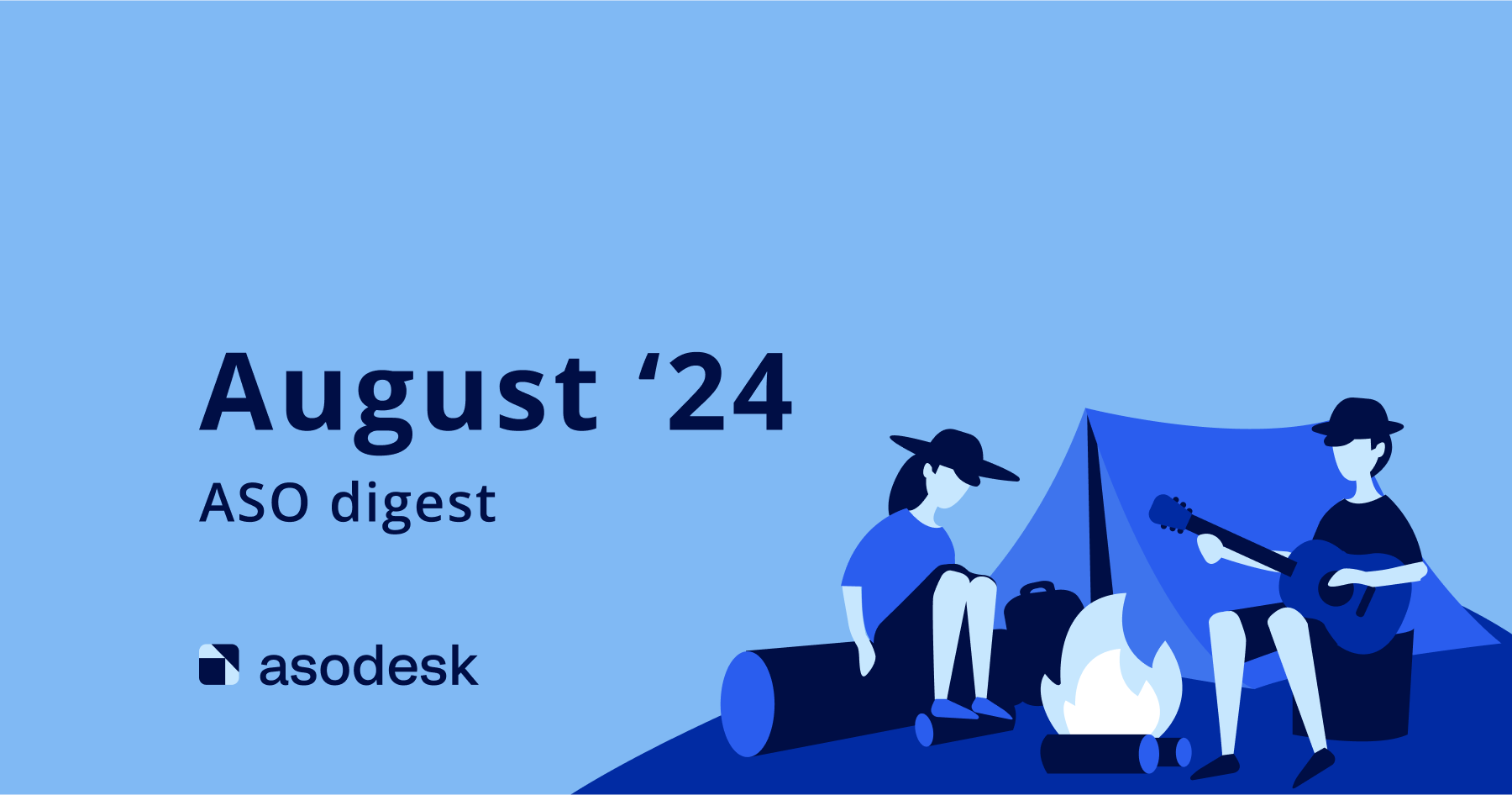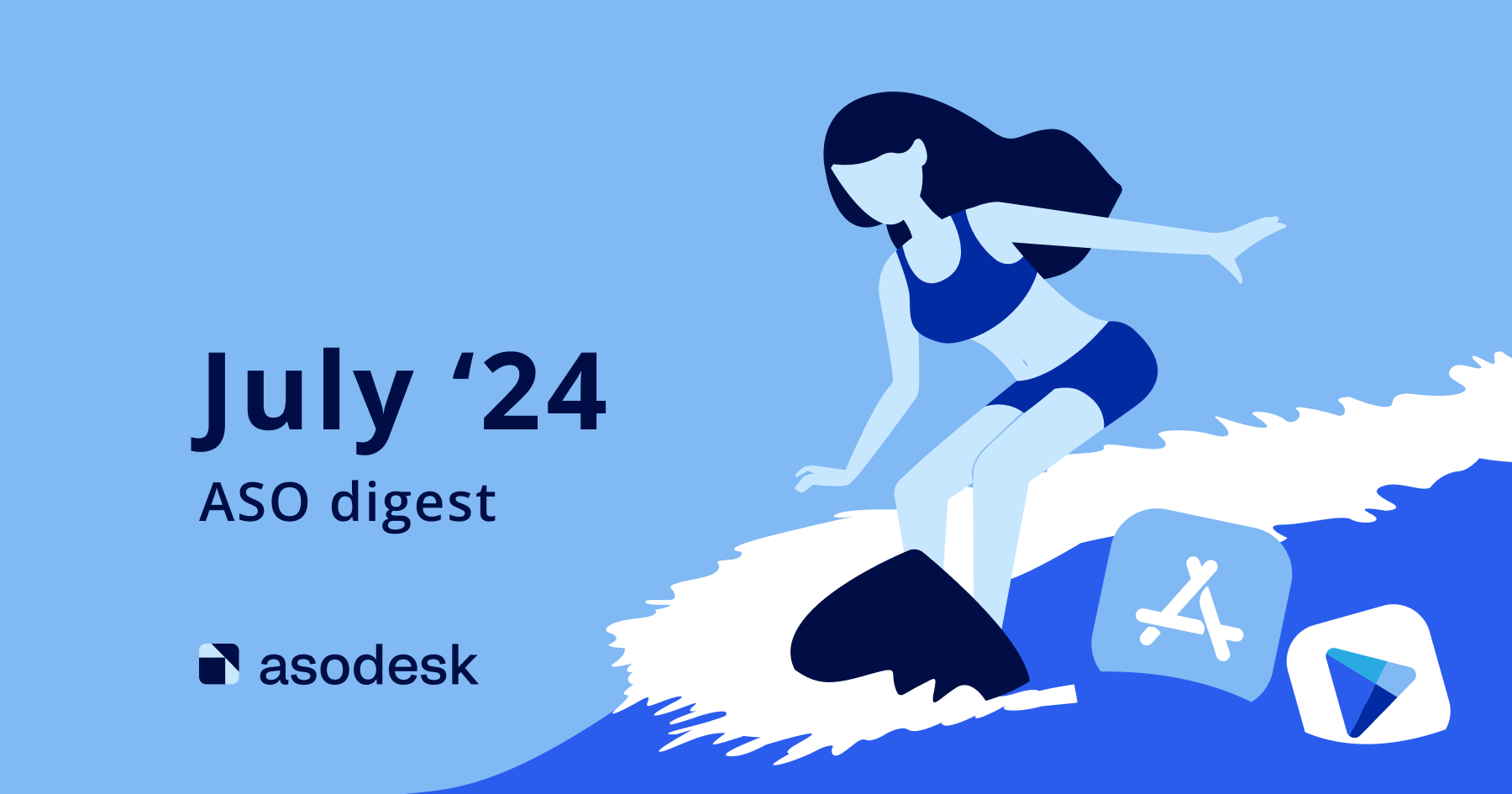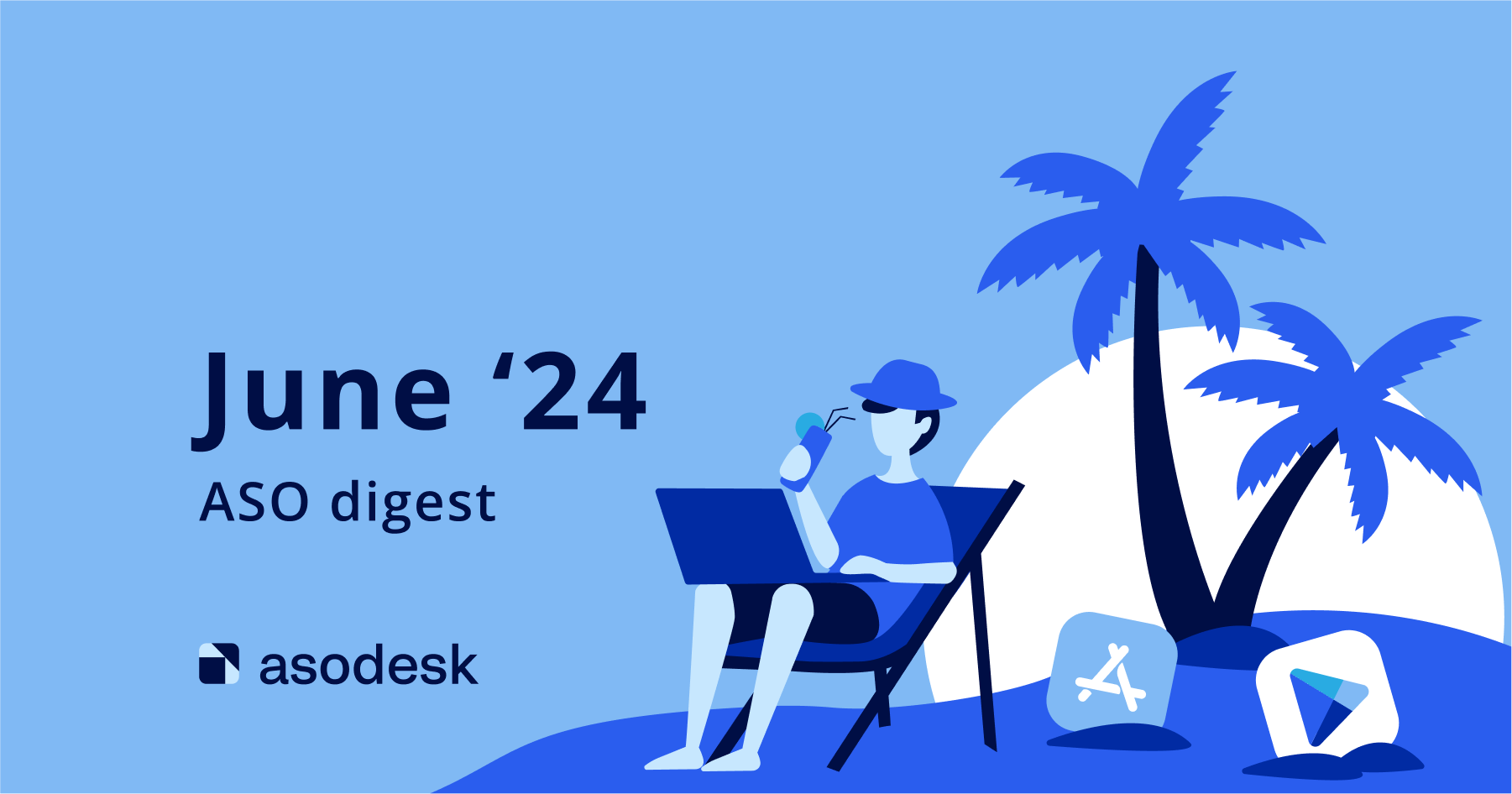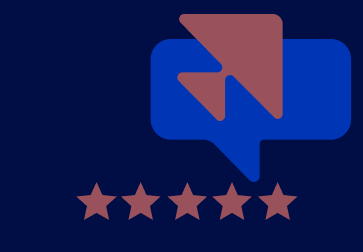ASO news digest for December 2023
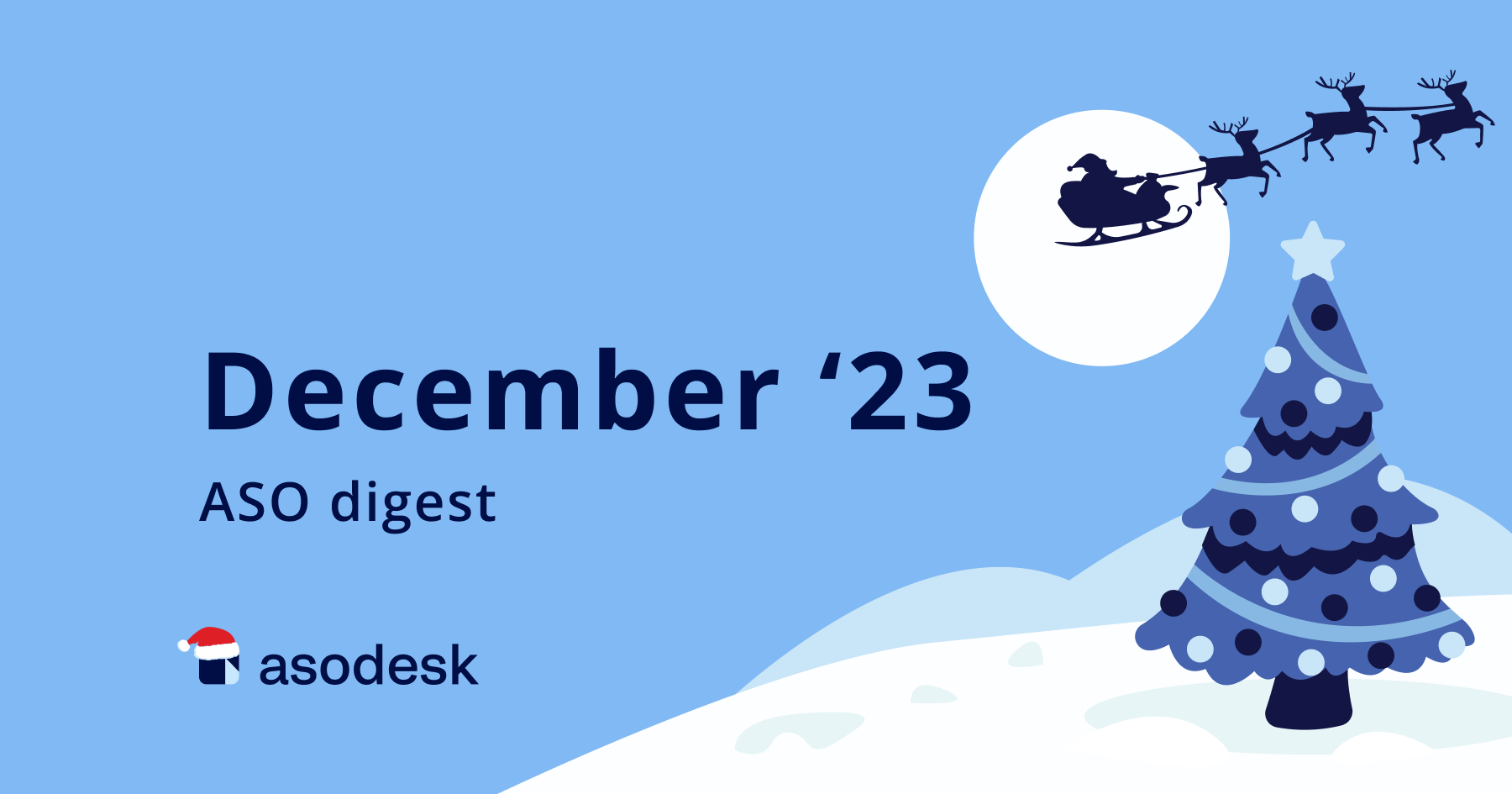
ASO specialists observed an unexpected drop in app rankings in the App Store. Google may be testing a new version of search on Play Store. Read all the latest App Store Optimization news from the App Store and Google Play in our digest.
Contents
1. Apple announced new contingent pricing for subscriptions to apps from the App Store
2. ASO specialists observed an unexpected drop in app rankings in the App Store
3. Apple will make it obligatory to include third-party SDKs and APIs in its privacy manifest
4. Apple updated its Developer Program License Agreement
5. Google is set to pay $700 million and make some adjustments to the Play Store to settle with all 50 US states
6. Google may be testing a new version of search on Google Play
7. Google introduced a new feature that enables users to remotely uninstall apps from their other Android devices on the Google Play Store
App Store news
Apple announced new contingent pricing for subscriptions to apps from the App Store
New contingent pricing for subscriptions on the App Store enables you to provide subscription discounts to users as long as they have different active subscription.
Discounts can also apply to subscriptions from two developers. For instance, when users subscribe to your game, they could have the opportunity to unlock discounts on a partner developer’s game.
Currently, Apple is in the testing phase of this feature and plans to bring more developers on board in the coming months. You can register to receive notifications about contingent pricing in January.
ASO specialists observed an unexpected drop in app rankings in the App Store
In early December, specialists started reporting shifts in keyword rankings within the App Store within the ASO Stack community on Slack. Jaideep Trivedi initially observed changes in the US locale, and several specialists agreed with his message.
Vadim Lysenko documented his observations regarding this anomaly on the App Store:
“1. Some localizations, such as English (US), now appear to have a global impact. Apps are ranking for keywords used in English (US) localization across various countries, including Brazil and France.
2. Certain localizations, like English (CA), Ukrainian, and Russian, are only partially effective. For example, our app ranks for five or six keywords from the Ukrainian localization globally, albeit in different orders and combinations. However, adding another keyword from the same localization to any of these mentioned keywords prevents the app from appearing in search results”.
By mid-December, specialists were still reporting on these changes:
1. Marvin noticed a continued decline in keyword coverage.
2. Manfred reported a 20% decrease in downloads compared to before the algorithm update.
3. Kaveh shared that the ranking of many of his 50 apps had been negatively affected. Despite efforts to understand the changes in Apple’s algorithm, no clear correlation was found.
4. Arnas observed a drop in rankings across multiple localizations for keywords with high search volume. Their apps had maintained stable positions for these keywords for at least a year, but they now saw drops ranging from 2 to 10 positions.
It’s possible that this problem is temporary and may be linked to recent updates on the App Store, especially since Apple’s official documentation has not undergone any alterations.
Apple will make it obligatory to include third-party SDKs and APIs in its privacy manifest
At WWDC23, Apple introduced new privacy manifests and signatures for SDKs.
From the spring of 2024, if you add a third-party SDK to a new app or update, you will need to include the privacy manifest for the SDK. Signatures also become mandatory when incorporating the SDK as a binary dependency in your project.
When you add an API, like those from third-party SDKs, to your new app or update in App Store Connect you might get a notification if you haven’t given an approved reason in your app’s privacy details. In response to developer feedback, Apple has expanded the list of approved reasons to accommodate additional use cases. If you have a user-centric use case that isn’t covered by an existing approved reason, you can request the addition of a new reason.
Starting in the spring of 2024, to successfully upload a new app or app update to App Store Connect, it will be mandatory to include an approved reason in your app’s privacy manifest that accurately describes how your app utilizes the API.
Apple updated its Developer Program License Agreement
Apple revised the Apple Developer Program License Agreement to align with updated policies and offer enhanced clarity. Here are the updates:
1. Definitions, Section 3.3.3(N): Updated “Tap to Present ID” to “ID Verifier”.
2. Definitions, Section 14.10: Updated terms regarding governing law and venue.
3. Section 3.3: Reorganized and categorized provisions for clarity.
4. Section 3.3.3(B): Clarified language on privacy and third-party SDKs.
5. Section 6.7: Updated terms regarding analytics.
6. Section 12: Clarified warranty disclaimer language.
7. Attachment 1: Updated terms for use of Apple Push Notification Service and Local Notifications.
8. Attachment 9: Updated terms for Xcode Cloud compute hours included with Apple Developer Program membership.
Read the full Agreement.
Google Play news
Google is set to pay $700 million and make some adjustments to the Play Store to settle with all 50 US states
On December 11, a jury reached a verdict, declaring Google’s Play Store to be operating as an unlawful monopoly, which marked a significant victory for Epic Games. However, Epic Games wasn’t the sole participant in an antitrust battle against Google. In September, all 50 state attorney generals reached a settlement in a parallel lawsuit.
Recently, we have learned the terms of Google’s concessions in response to this settlement. These terms include a substantial $700 million payout and a series of small adjustments to Google’s operations within the US app store landscape.
The key adjustment will require Google to allow developers to direct users away from the Google Play Store for a defined period if this settlement is approved.
Google will fork over a total of $700 million, which roughly amounts to 21 days’ worth of Google’s operating profit solely from the Play Store. Here is a rough breakdown:
- $629 million will be allocated to consumers who may have overpaid for apps or in-app purchases through Google Play, after accounting for taxes, legal fees, and more.
- $70 million will be allocated to the states, with the discretion to utilize it as deemed appropriate by the state AGs.
- $1 million is designated for settlement administration.
Additionally, Google has agreed to several provisions over various periods:
- For 7 years, Google will maintain the technical capability for Android to allow the installation of third-party apps on mobile devices through platforms other than Google Play.
- For 5 years, developers will be able to offer an alternative in-app billing system alongside Google Play, known as “User Choice Billing”.
- For 5 years, Google won’t require developers to provide their best prices exclusively to customers who use Google Play and Google Play Billing.
- For 4 years, Google won’t compel developers to release titles on Google Play simultaneously with other app stores and with feature parity.
- For 5 years, smartphone manufacturers won’t be obligated to exclusively feature Google Play on a phone or its home screen.
- For 4 years, Google won’t impede OEMs from granting installer rights to preloaded apps.
- For 5 years, Google won’t demand “consent” before an OEM preloads a third-party app store.
- For 4 years, third-party app stores will be permitted to update apps without requiring user approval.
- For 4 years, Google will allow sideloaded app stores to utilize its APIs and “feature splits” for easier app installation.
- For 5 years, Google will replace its two sideloading “scare screens” with a single user prompt, conveying the agreed-upon message: “Your phone currently isn’t configured to install apps from this source. Granting this source permission to install apps could place your phone and data at risk”.
- For 5 years, developers participating in User Choice Billing can inform their users about better pricing elsewhere and complete transactions using the developer’s existing web-based billing solution in an embedded WebView within their app.
- For 6 years, Google will continue to allow developers to use contact information obtained outside the app or within the app (with user consent) to communicate with users outside of the app.
- For 6 years, consumption-only apps, such as Netflix, can inform users about better prices elsewhere without directing them to an external website. For example: “Available on our website for $9.99”.
- For 6 years, Google “shall not prohibit developers from disclosing to users any service or other fees associated with Google Play or Google Play’s billing system”.
You can read the full 68-page settlement here.
As per the legal documents filed with the court, the states are scheduled to seek approval for the settlement before Judge James Donato on February 8. It’s worth noting that Judge Donato is also presiding over the Epic v. Google case, and in the second week of January, both parties will engage in discussions regarding the potential outcomes of Epic’s case against Google.
Google may be testing a new version of search on Google Play
9to5google noticed that Google is trying out a new app design that includes a search tab and has removed the search bar. This discovery was initially made in early December.
On the Pixel Fold device, Andrew Romero from 9to5google saw that the Play Store had a slightly different appearance: the search bar was absent. Instead, the app featured three primary tabs at the bottom: Games, Apps, and Books. Interestingly, the Offers tab was missing. To search for an app, the only available options were to tap on a suggested app from the main tabs or use the search icon that appeared on the page.

Source: 9to5google.com
Other users have reported similar experiences. For instance, AssembleDebug shared on Twitter/X that the page menu now included an additional Search tab, where suggested search terms were displayed in card format. Interestingly, the search bar was also missing from the Apps and Games pages in this version but was present in the dedicated Search tab.

Source: twitter.com
The key change in this redesign appears to be the introduction of a dedicated Search page. We should also note that these alterations have been implemented server-side, with no specific app version associated with them. While this redesign hasn’t been rolled out widely yet, it is indicative of potential changes within the Play Store during the testing of which some features may temporarily be broken.
Google introduced a new feature that enables users to remotely uninstall apps from their other Android devices on the Google Play Store
As outlined in the changelog for System Updates, Google is currently in the process of rolling out this new option for uninstalling apps from “other connected” Android devices on the Google Play Store, including Auto, PC, Phone, TV, and Wear.
To provide more insights into how it functions, TheSpAndroid has successfully activated this feature and shared images of the process.
This feature is hidden in version 38.8 of the Play Store, which has not yet been widely distributed. After enabling this feature, the “Manage Apps” section in the Play Store will display apps installed on a different Android device. Users can then uninstall the app from the other device by utilizing this interface, as shown below.

Source: 9to5google.com
This feature requires a user to select apps to uninstall by checkboxes. When a user chooses to uninstall, an interface will appear, displaying the connected devices where the app is currently installed.
Additionally, this feature allows users to sort the list of apps on their other devices by storage usage, which can be particularly useful when removing apps from devices like Google TV.
It is still unclear when this feature will become widely available.
Subscribe to our newsletter and receive regular updates on App Store Optimization news, as well as informative articles covering ASO, mobile marketing, and app review management.


